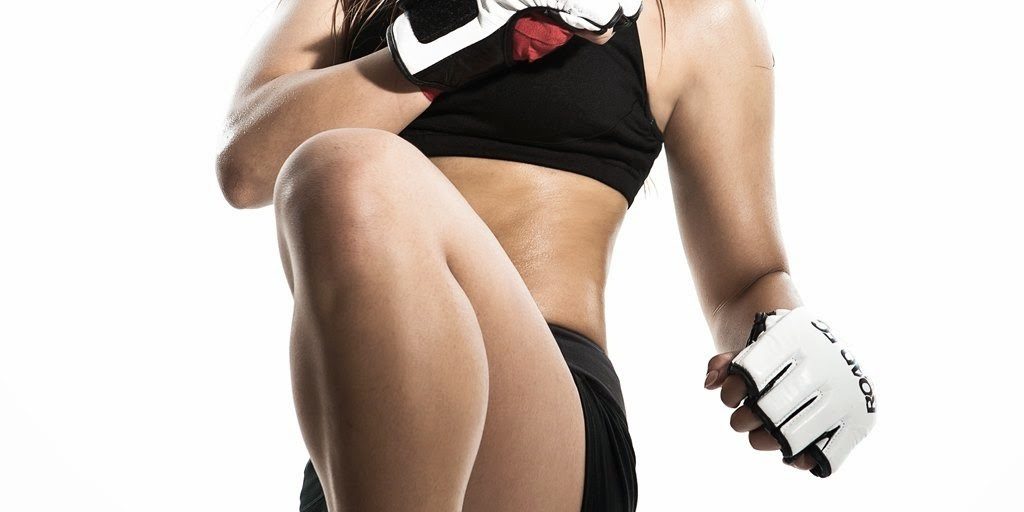Making the target for a weight class cutoff in a combat sport requires a lot of sacrifice and uncomfortable dietary measures, and there are times when athletes are so far off that they resort to extreme weight cutting methods. There’s nothing healthy about rapidly losing weight, nor are there any really safe alternatives to the usual methods of doing so, but people still do all sorts of things in hopes of making the cut.
There are comparatively safe ways of weight cutting, but let’s start off with some of the things you shouldn’t do first, just to get things out of the way.
Some of the more unsavory ways of intense weight cutting include the sauna, a desperate attempt to shed a few more pounds by forcing themselves to sweat in steamed rooms. This is dangerous for a variety of reasons. For one, it may lead to severe dehydration, which among other things can lead to reduced bone density and hormonal imbalances in female fighters, who are already operating at very low body-fat percentages. Due to the high temperatures, it can also result in hyperthermia, and impact the reproductive system. Finally, losing weight with a sauna doesn’t even remove fat – the weight loss that results from sauna use is water weight.
Another bad way of losing weight is starving yourself or depriving yourself of water. You might make it to the weight class you desire, but that’s no use if you also deprived yourself of the energy you need to fight in tip-top shape.
Finally, there’s laxative and diuretic use. Often considered magic bullets for weight loss, these drugs can cause you to poop and pee all that weight out. But diuretic use is associated with blood pressure increase, palpitations, viscous blood, organ failure, and a whole host of other dangerous side effects. Laxatives on the other hand can lead to mineral and electrolyte imbalances, irritation of the intestines, and even dependency effects that require you to take more and more of them to get similar effects. And of course, both laxatives and diuretics are associated with dehydration.
Weight cutting is a potentially dangerous affair, but there are still some safe ways of carrying it out. Here are tips on what you should do to make it to that weight cutoff.
- Plan your diet weeks ahead
You definitely shouldn’t be starving yourself for quick weight loss, but gradually modifying your diet to achieve your goal weight will enable you to get there without substantially adverse effects. Start 3-4 weeks before your fight, and commit to a diet plan that will allow you to get to your goal weight, and don’t stray from it.
Slowly cut down on carbs, as these are responsible for an extremely large portion of your weight. Also get rid of sugary and salty foods and condiments – sugar gets converted into fat, while salt promotes water retention. The result will be a relatively bland diet, but you only have to endure this for a few weeks leading up to the competition.
In the week leading up to your weigh-in, slowly cut down on your water intake, starting with a healthy 2-gallon consumption on the first day, 1 gallon on the second and third day, half a gallon on the fourth day, and a quarter gallon on the fifth, and finally 24 hours before your weigh-in, don’t drink any water at all. You’ll be allowed to rehydrate after your weigh-in, so that sacrifice will be recovered very soon.
- Sauna up right before the weigh-in.
Regularly using the sauna won’t do you any good. However, it’s all right to make use of it right before your weigh-in, to shed off any remaining pounds of water. Don’t enhance your experience with diuretics or laxatives, though, and don’t try something silly like working out in a sauna suit. You still need energy, and shouldn’t be straining your body too much.
- Right after your weigh-in, replenish your electrolytes before you chow down.
Just as important as losing weight safely is recovering from the process healthily. After your weigh-in, drink sports drinks that will rehydrate you and replenish the essential minerals and electrolytes that your body needs. Once your urine is light-colored, you can start eating. Don’t overdo it though – ensure that your stomach is empty right before your fight.
It’s easy to get caught up in the process of losing weight. Some fighters have developed unfortunate conditions such as bulimia in the obsessive race to lose weight. Others have even gotten seriously ill. But follow these tips, and avoid unhealthy techniques, and you’ll be fighting at peak performance while still meeting that target weight class, as well as avoiding unhealthy situations that may take you out of the fighting world.






